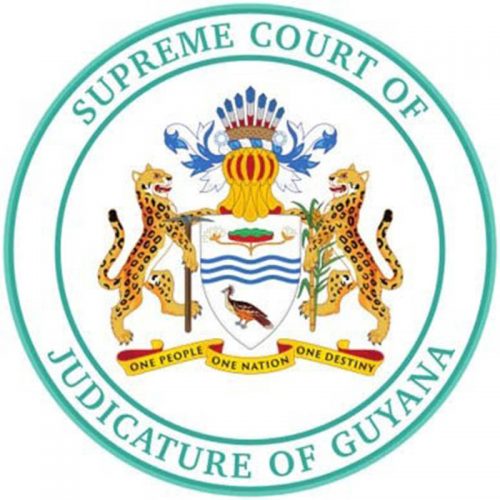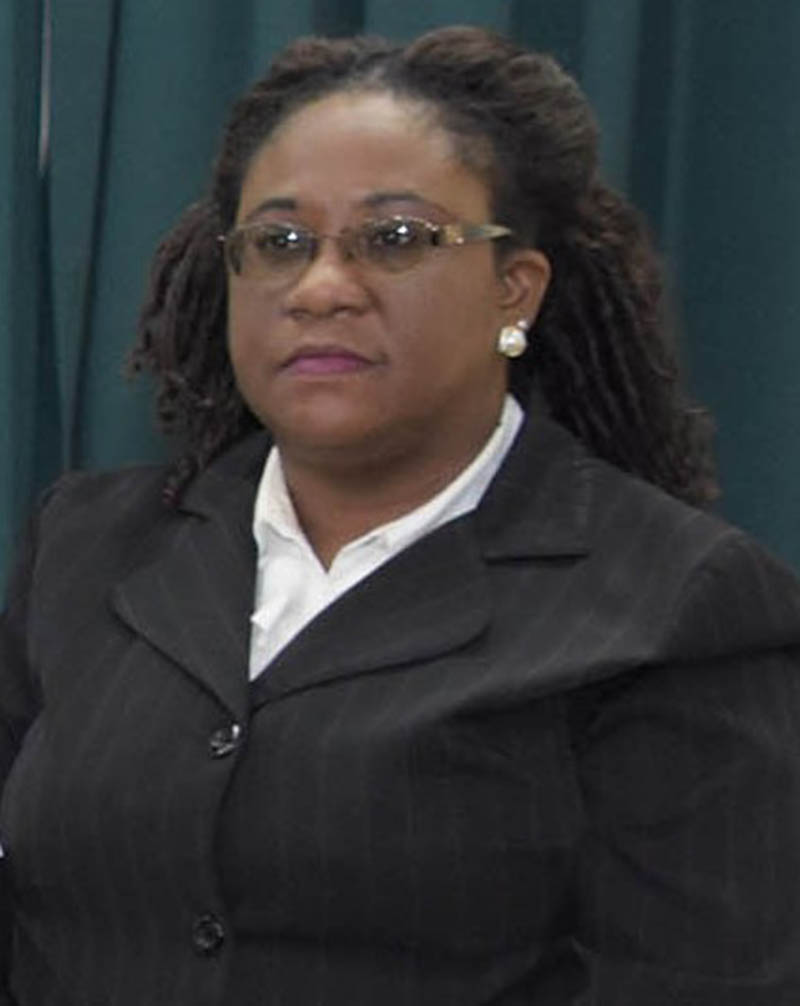To mark this year’s International Day against Trafficking in Persons (TIP) which will be observed on Saturday July 30th, the Supreme Court of Judicature is hosting a series of discussions on what it describes as “protective measures” for addressing “the modern-day slavery” and the law in relation to TIP offences.
The first of those talks was held on Tuesday morning’s 94.1 radio programme with Chief Magistrate Ann McLennan who sought to explain what constitutes TIP and how it is punished by law.
Magistrate McLennan who is President of the Guyana Association of Women Judges (GAWJ) said the association is hoping to raise awareness of what she said is a “serious modern-day slavery crime.”
 She said the discussions are aimed at maintaining public confidence in the judicial system.
She said the discussions are aimed at maintaining public confidence in the judicial system.
On this point she said that though one may not see many cases being taken before the courts, the association wants to “maintain that public confidence in the judicial system” by raising awareness of the protective measures in place for victims of TIP.
Even as she encouraged it, Magistrate McLennan said that reporting the offence of TIP is one of the challenges facing efforts in the local fight.
She broached the issue in response to radio host Gordon Moseley, who referenced the recent United States Department of State international report on TIP which he said raised concerns of inadequate prosecutions and convictions in Guyana.
The Chief Magistrate said that underreporting often results because victims themselves do not always realize that they are being trafficked.
Against this background she said that one activity which will be undertaken by the GAWJ in its sensitization efforts, is the distribution of 150 TIP posters in each of the 10 Administrative Regions.
Three languages
She said a unique feature of those posters is their availability in three languages—English, Spanish and Portuguese—and will among other things provide key guidance on how to recognize the crime of TIP and where to report it.
Given the presence of the wide cross-section of Cubans, Venezuelans and Brazilians here in Guyana, Magistrate McLennan underscored the importance of not having the posters restricted to being written in English only.
She said that members of the public can expect to find those posters at strategic points; such as ports of entry, village offices, police stations and health centres; given that many victims who are often abused would usually visit health facilities.
Apart from Georgetown, Magistrate McLennan said that among target areas will be far-flung interior locations such as Annai, Karasabai, Mabaruma and Aquero.
She implored persons to report the crime where they may have identified or even suspected that someone is being trafficked.
On that point she said signs to look for are persons who are forced to beg, bearing frequent injuries or signs of abuse, appear malnourished, work for long hours with hardly any rest and are paid little to no remuneration at all.
She said that avoiding eye-contact and social interactions and not being allowed to speak to family members or others; are also telltale indicators that a person may be a victim.
To encourage reporting, Magistrate McLennan also shared the TIP 24-hour hotline numbers which are 227-4082 or 623-5030. Alternatively she said that the Guyana Police Force can be contacted on 225-3650; and that the Spanish hotline can be reached on 624-0079.
TIP is an offence in Guyana under Section 3(1) of the Combating of Trafficking in Persons Act.
Persons who are convicted face a penalty in the Magistrate’s Court if tried there, of imprisonment from three to five years and in the High Court from five years to as much as a sentence of life in prison.
Additionally, such convicts are required to pay restitution to their victims, which the Chief Magistrate explained would include medical treatment, cost of physical and occupational therapy, attorneys’ fees and other losses suffered by the victims.
She said it was important for the public to know what TIP “looks like,” and against this background said its definition in Section 2(k) of the Act consists of three elements—the act, the means and the purpose.
The act the Chief Magistrate explained involves recruitment, transportation, receiving or harbouring of persons—the means element involves the manner in which the offence is committed—by coercion, deception, tricks, fraud, threat of use of force or the exercise of control over a person among others—and the purpose for either sexual or labour exploitation.
She said that in those circumstance, consent “is normally not relevant…because, there can be no consent if you are forced, threatened, deceived or tricked.”
Meanwhile, Magistrate McLennan said that specifically regarding children, there is no requirement for “the means element,” since; where the act has been established and the form of exploitation, “then that is sufficient” to prove the offence.
Under the theme for this year’s observances—Use and Abuse of Technology—McLennan said the association is hoping to raise awareness of the issue of TIP.
She noted that the theme focuses on the role of technology as a tool that can both enable and impede human trafficking.
In support of the fight this year to eradicate TIP and in keeping with the theme, the Chief Magistrate said that the GAWJ is seeking to sensitize the public on TIP by the use of technology and other means.
To this end she said that this morning the association will be holding a collaborative panel discussion on 104.1 FM Radio at 7:30 which will be live streamed on the Supreme Court’s Facebook page.
The panel for that discussion she said, will include members from the Judiciary, the Police Force, the Ministry of Human Services and Social Security’s TIP Unit and the International Office for Migration.






